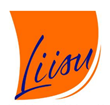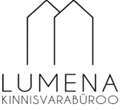We invite you to have a look at the 52nd issue of Turvaja newsletter.

Newsletter No. 36
June 2021
Decisions of the Estonian Industrial Property Board of Appeal
I Oppositions
Decision No. 1853-o
Earlier trademarks
LIISU

Opposed trademark
Liisu
Opposition to registration of the trademark “Liisu”.
The Board considers that the evidence submitted by the opponent shows that the opponent has been using its trademarks in Estonia in relation to dairy products since May 2017. Nevertheless, the evidence does not allow to conclude that the trademarks “LIISU” and “Liisu + device” have become well-known.
The opponent’s products had been on the market for approximately one year and five months at the time of the applicant’s application for registration of the trademark “Liisu”. Although it cannot, in principle, be ruled out that a trademark may become well known during a short amount of time, in the present case there is no evidence to suggest that the opponent’s activities were so intense as to quickly reach the minds of a significant number of persons in the sectors concerned.
Although the opponent has provided the Board with information on advertising costs, the evidence does not show what specific steps have been taken to promote the “LIISU” marks for the corresponding amounts of money. Nor can it be inferred from the evidence that the opponent’s marks have achieved a high level of recognition among consumers as a result of the aforementioned advertising.
It is clear that the opponent’s evidence does not address the sale of the opponent’s “LIISU” products by small undertakings and/or their awareness of the opponent’s trademarks. Thus, it has not been established that the vast majority of the dairy distribution sector or the relevant business sector is familiar with the opponent’s marks.
The opposition was dismissed.
Decision No. 1839-o
Earlier trademark

Opposed trademark
VOLVOX
Opposition to registration of the trademark “VOLVOX”.
The Board agrees with the opponent that the word elements “VOLVO” and “VOLVOX” are similar and that, consequently, the comparable marks as a whole are visually, aurally and conceptually similar, despite the fact that the letter “X” is not common in the Estonian language.
The Board notes that even if the applicant has developed its brand on the basis that “volvox” is an algae, an organism whose members can deliver independently but form a more efficient group together – and thus refers to the functioning of the service provided by the applicant and its team –, it is unlikely that the average consumer of the applicant’s services would establish such a link solely on the basis of the trademark “VOLVOX”. The Board considers it even less likely that the Estonian consumer would divide the parts of the mark “VOLVOX” into the German term “voll” (meaning “complete”) and the Latin term “vox” (meaning “voice”, “competence”, “jurisdiction”), thereby interpreting the applicant’s trademark as “complete competence”.
The Board considers that such an approach is artificial and that the applicant’s trademark does not give rise to such associations in reality.
The Board observes that, although the wording of the applicant’s and the opponent’s lists of services is not identical, all the services covered by the applicant’s trademark application are covered by or closely linked to the aforementioned opponent’s services.
The opposition was sustained.
Decision No. 1883-o
Earlier trademark

Opposed trademark

Opposition to registration of the trademark “LUMENA KINNISVARABÜROO + device”.
The Board considers that the dominant element of the contested mark, both visually and conceptually, is the word “LUMENA”. The design element merely emphasizes the sign’s connection with the services provided, in particular in conjunction with the word “KINNISVARABÜROO” (real estate agency).
The word “lumina” also dominates the earlier trademark. The Board acknowledges that the word “KVARTAL” (quarter) does not indicate the nature of the services to the consumer as clearly as the element “KINNISVARABÜROO” of the contested mark. However, this element is practically inconspicuous visually, very common in the context of immovable property services and alludes to the type of service. Thus, it cannot be viewed as a dominant element of the earlier mark as a whole.
The opponent considers the acute-shaped element to be a stylized dot on the letter “i” and has argued that the emphasis on pronunciation is identical in the comparable marks. The Board agrees that the argument is well founded and notes that there are grounds for considering the pronunciation of the dominant verbal elements of the comparable marks to be rather similar or even identical.
The Board observes that the word “lumena” is an Estonian word with a meaning, namely the primitive singular form of the word “lumi” (snow). Nevertheless, the Board agrees with the parties in that the word in this form, never used without context, does not make the marks conceptually comparable or different.
The opposition was sustained.
Decision No. 1881-o
Earlier trademark
ÖKOSEPT
Opposed trademark
Ecosept
Öko-Pharma OÜ has applied for the registration of the contested trademark on 13.02.2019. On 20.04.2020, the application for the contested mark was transferred to OÜ Ecosept and an entry has been made in the Register of the Patent Office.
Despite the fact that the individual to whom the application has been handed over and who intervenes in the proceedings before the Board in place of the previous applicant is a new individual, everything resulting from both the application and the applicant’s status can be attributed to them.
In the present proceedings, the new applicant has submitted their written position on 26.05.2020, which is one day later than the deadline of 25.05.2020 set for the applicant. The Board therefore agrees with the opponent that the applicant’s position was not received within the allocated timeframe. However, the Board does not agree that the applicant’s position should therefore be disregarded.
The Board considers that there is no doubt as to the identical or similar nature of the goods. The Board finds that the marks are visually similar, despite the differences in the beginning of the words, and that it is also likely that the consumer may confuse the trademarks aurally.
The Board considers that a consumer who is sufficiently informed and able to make connections will not distinguish whether the applicant has tried to project economy or environmental friendliness with their mark. As the average Estonian consumer is able to understand foreign languages at least to a basic degree, and in these languages the prefix “öko-“ corresponds to the prefix “eco- / eko-“, it is highly likely that these marks will be confused because they are conceptually identical.
The applicant has stated that they have the primary right to register trademarks and patents with their business name in the Republic of Estonia. An earlier business name may have the effect of challenging and revoking a later trademark, but the existence of a business name does not in itself confer any prerogatives.
The opposition was sustained.
Decisions of the Domain Disputes Committee
Case No. 21-1a-347
Opposed domain names: hhprefab.ee; happyhomemajad.ee; jaapanimaja.ee
The domain names hhprefab.ee and happyhomemajad.ee were transferred to the opponent.
The opposition to the domain name jaapanimaja.ee was dismissed.
The production of houses with the designation “Jaapan” by the opponent and the alleged reputation of this product do not infer the opponent an earlier right, as it is not a registered trademark in Estonia, the name of a natural person, the name of a legal person registered in Estonia, nor the same of a state, local government or their agency, nor of an international or intergovernmental organization.
The Board agrees with the opponent that the domain name hhprefab.ee is identical to the opponent’s business name, i.e. their earlier right. The Board also agrees that the domain name happyhomemajad.ee is misleadingly similar to the opponent’s registered trademark “Happy Home”.
In its reply, the registrant has not indicated any specific right or legitimate interest in the registration of the domain name hhprefab.ee, the absence of which is confirmed by the registrant’s consent to transfer it to the opponent.
With regard to the domain name happyhomemajad.ee, the registrant has indicated in general terms the intention to use it in relation to the registrant’s holiday accommodation. The Board considers that the registrant’s claims regarding this intention are vague and no evidence has been submitted to that effect. The fact that the registrant has registered the domain name hhprefab.ee on the same day as the domain name happyhomemajad.ee confirms the lack of coincidence in the registration of these domain names and indicates the intention to take advantage of the reputation of the opponent and their earlier right.
The opposition was partially sustained.
Case No. 20-1a-344
Opposed domain names: bobcatbalti.ee; bobcat-balti.ee; bobcatrent.ee
The domain name bobcatrent.ee was transferred to Opponent 1, Doosan Bobcat EMEA s.r.o.
The domain names bobcatbalti.ee and bobcat-balti.ee were transferred to Opponent 2, OÜ Bobcat Balti.
The Board is of the opinion that the dominant element “BOBCAT” featured in the contested domain names is identical to the earlier rights of the opponents – the trademarks of opponent 1 and the business name “OÜ Bobcat Balti” of opponent 2.
Being aware of the existence of the trademark and the business name, the registrant had to understand that by combining the trademark of opponent 1 with a generic reference, or by using the business name of opponent 2 in its own domains, meanwhile offering products of other trademarks through it, may be reasonably resented by the proprietor of the “BOBCAT” trademarks. To avoid this, the registrant could have consulted and sought the consent of the trademark and/or business name owners before registering the disputed domains.
The registrant is not known by the domain names and did not use them before the end of 2020. There is no evidence that the registrant has the rights to the elements “BOBCAT” or “Bobcat Balti” in Estonia or outside Estonia, or that the registrant themselves is well-known for the disputed domain names. Therefore, according to the Board, the registrant has not proven the right to use the trademarks or business name, or the existence of a legitimate interest to this end.
Given that the registrant has specifically chosen “BOBCAT” trademarks for their domain names and/or registered domain names containing the opponent’s business name, it is plausible that the registrant is attempting to unduly exploit the reputation of the trademark and of the opponents.
The opposition was sustained.
Court Decisions
Civil Chamber of the Supreme Court, Case No. 2-14-6942
The applicant – worldwide organization representing trademark proprietors – has brought an action for termination of the infringement of the trademark proprietor’s rights, for future infringement, and for damages.
According to the applicant, the defendant was aware that there was an illegal sale of counterfeit goods on the websites on which they provided the service. The scale and focus of the defendant’s activities on counterfeit traders allegedly demonstrated their willingness to provide such a service.
The defendant disputed the claim, stating that they had not sold counterfeit goods or used the image of the trademark, and had not unlawfully caused the applicant damage which could be regarded as loss of income. According to the defendant, they were not aware of the content of the internet sites or of the identity of the provider of the web-hosting service.
The Chamber agrees with the courts that the defendant was obliged, from the moment when they were informed of the illegal activities of the persons directly infringing the exclusive rights of the trademark owners, to prevent the infringement of the trademark owners’ rights on the websites indicated in the application. By failing to fulfil its turnover obligation, the defendant knowingly and intentionally contributed to the unlawful conduct of the persons directly infringing the trademark proprietors’ exclusive right, and must therefore be regarded as contributing to the infringement of the trademark proprietors’ exclusive right.
Despite the fact that the courts were right to hold the defendant jointly and severally liable for the damage caused to the trademark proprietors jointly with the persons directly infringing the trade mark proprietors’ exclusive rights, the courts did not award damages in favour of the applicant. The Chamber is of the opinion that the courts have based their claim for compensation for loss of income on the rules for calculating specific actual damage, and have not taken into account the specifics of determining compensation for loss of income caused by trademark infringement. The Chamber therefore considers it justified to refer the matter to the county court for a new hearing in the annulled part.
The applicant also claims that the courts erred in dismissing the claim for non-infringement. The Chamber does not agree. The Chamber, like the circuit court, considers that, in upholding the action, the court must be able to determine which specific actions the defendant must refrain from, but this is not possible on the basis of the applicant’s claim.
The decisions of the Circuit Court and the County Court were partially annulled due to incorrect application of the substantive law norm, and the matter was sent back to the County Court.
The appeal in cassation was partially upheld.
The material provided in this newsletter is for informational purpose only and does not contain legal advice.
For additional information please contact our patent agency:
Patendibüroo TURVAJA OÜ
Liivalaia 22
Tallinn 10118
Estonia
We invite you to have a look at the 51st issue of Turvaja newsletter.
We invite you to have a look at the 50th issue of Turvaja newsletter.